“Even school districts have a part to play in the climate crisis.”
— Danny Cage, youth activist and Portland Public Schools student rep
17-year-old Danny Cage is a student representative of the Portland Public Schools Board of Education Policy Committee and a speaker and youth organizer who advocates for racial justice, education reform, and LGBTQ+ rights. We last shared his words when he spoke at the Global Climate Strike in front of City Hall last September.
The Portland Public Schools (PPS) Board of Education recently voted their draft Climate Crisis Response Policy (CCRP, see PDF embed below) out of its policy committee and it had its first reading at a public hearing on February 8th. The soon-to-be climate policy is an important one and recognizes how even school districts have a part to play in the climate crisis. As the student representative to the district’s policy committee, I can say that this is a bold and comprehensive plan and a meaningful commitment to our students.
Years ago PPS was not called-out, but called-in by youth organizers and students, myself included, to step up and be leaders among the climate crisis. Now I have been honored to work with the district and be a part of the solution.
Some might ask: Why does it matter if a school is invested in climate change? And to that I would say that we must be not only committed to the academic well-being of our students but the physical safety of them long-term — and that means climate change. We know that if we don’t address the climate crisis it will have devastating impacts on the planet as well as future generations that means students will be impacted. We as a district can take accountability and hold ourselves accountable to not only our students but the wider Portland community and be the example for other school districts to follow across Oregon as we have been in the past.
Advertisement
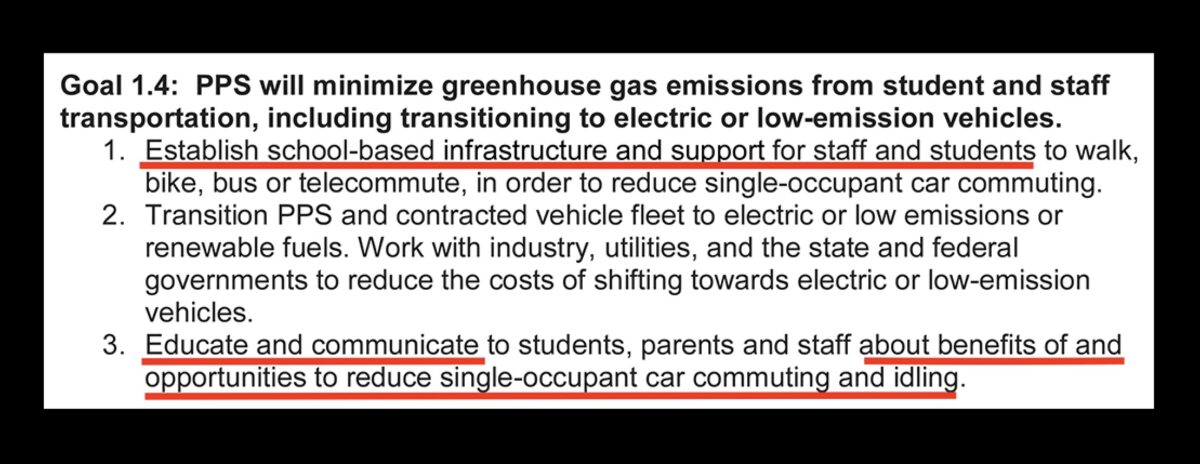
If done so thoughtfully this policy can address and accommodate the ever growing needs that our students have from climate based issues. This policy has seen over a year of extensive community engagement from students, staff, community, and climate-based organizations. This long and thorough process of community engagement will have had in this policy allows us to address the multiple effects of the climate crisis and while continuing to educate on the issue as well.
From presenting solutions and learning-based options, to lowering our net-zero target goal from 2050 to 2040, to teaching students to understand climate change is a byproduct of capitalism, colonialism and white supremacy, to community engagement opportunities with your youth — PPS will be a leading example of how a school district can be a climate leader.
***
The PPS Climate Crisis Response Policy is currently open for public comment through March 1st. If you have input or feedback, please email publiccomment@pps.net.
View the draft policy below:
[pdf-embedder url=”https://bikeportland.org/wp-content/uploads/2022/02/File_-PPSClimateCrisisResponsePolicy2.pdf” title=”File_+ PPS+Climate+Crisis+Response+Policy+(2)”]



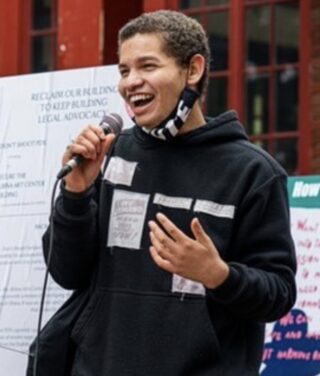
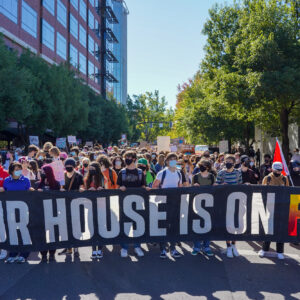

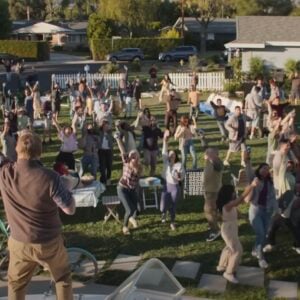
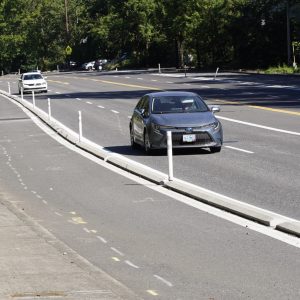
Thanks for reading.
BikePortland has served this community with independent community journalism since 2005. We rely on subscriptions from readers like you to survive. Your financial support is vital in keeping this valuable resource alive and well.
Please subscribe today to strengthen and expand our work.
No mention is made of the one policy that could have the most dramatic effect on energy consumption/pollution: mandate that kids attend the school building closest to their home. No commuting across town. I live hear two schools (one elementary and one middle) and twice a day there is a parade of 50+ cars to each school with a parent dropping off their kid. It is worse in the afternoon, when the parents get in line about 20 minutes before the final bell, and sit idling in their SUVs.
If you bike through a neighborhood around school dropoff/pickup time, you know most of those 50+ cars are not coming from across town, most are coming from a half mile away. It’s very obvious from their exhausts on a cold morning, that they have not been running long.
Until it’s safe for kids to walk, ride, or take transit, most parents will choose to shuttle them by automobile.
Exactly. Our neighborhood is about 50/50. It takes ten minutes to safely walk to school, but we get passed by the other half of the neighborhood driving the exact same route to the school.
Same here – we actually walk by several houses as they are loading up their kids to drive them 2 blocks to school. It’s nuts.
It’s unfortunate that this document treats agriculture-associated emissions as “health and wellness” instead of recognizing that animal agriculture is the 2nd leading cause of CO2e emissions and a major contributor to global famine.
PPS must fix the crisis at their feet: Portland’s failing public education system. Otherwise, parents of means will decamp for the suburbs (increasing carbon emissions) or enroll their children in private school, and the kids left behind won’t reach their full potential.
Fixing the failing schools causing families to flee the city is the best way for PPS to help the environment. Everything else is just more hot air.
This was my exact thought when I saw the headline. A+
While I wouldn’t use the same wording, making Portland schools the jewel of the region could encourage more people to live close in and help build a virtuous cycle of rising enrollment and increasing urbanization. This would be great for emissions
I like the aspirational component of this, but this will literally never happen with the union and the absolutely terrible administration of PPS. The infrastructure is awful, there is no recourse for parents looking for an academically focused education for their kids to succeed, and the outcomes reflect this entirely.
Looking to sell and hightail it to the burbs this summer for this reason alone. Have had one kid go through kindergarten and 1st grade at Duniway and that’ll do it for me.
I just want to offer a brief note of appreciation and respect to Danny for his impressive effort and commitment. Danny, I sincerely hope you’ll find that each success builds on the last, and that over time even the small wins add up to something much bigger.
Thank you for this wonderful article Danny. I really wish the policy had more teeth and actionable steps besides “Educatate and communicate” about the benefits to reduce single occupancy vehicle trips. We know there are actionable policy steps that can be made to prioritze space around schools for active transportion. Across Europe we have seen the health, environmental and social benefits of School Streets and Walking School Buses/ Bike Buses. We spend millions on school buses to support student transportation but nothing to support active transportation to school. We can do better to support families and students to walk, bike and roll to school.
Unfortunately PPS cares more about ideology then pragmatic solutions for its kids. They eliminated (in a knee jerk fashion) the school resource officers (SRO’s) which has led to a decrease of safety in the areas surrounding the schools. This leads more people to drive their kids to school instead of letting them bike or walk. They won’t even discuss this with concerned parents. I tried but was rebuffed.